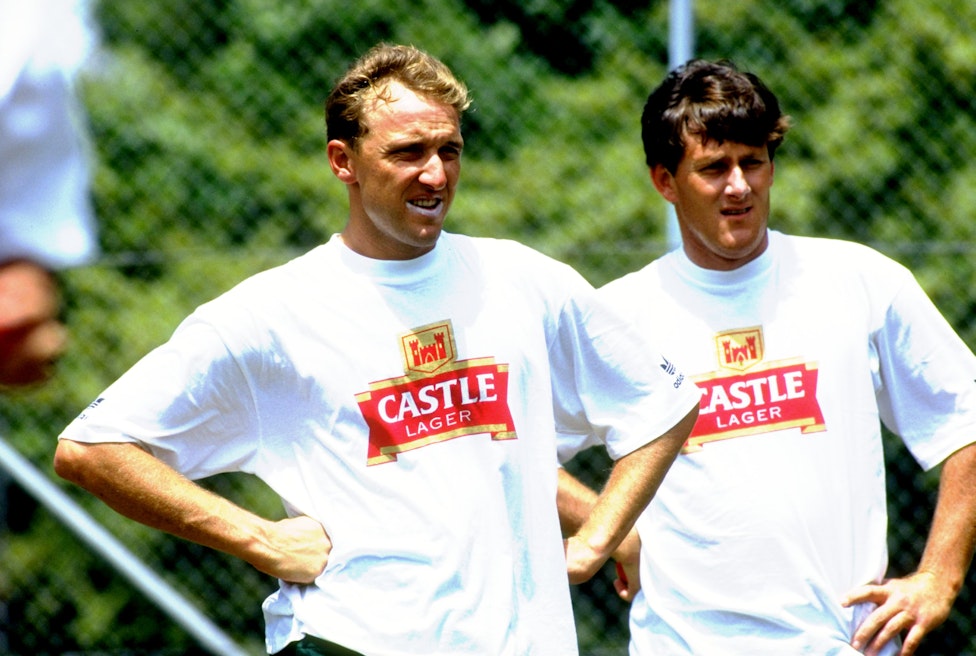 ON THIS DAY
ON THIS DAYAs many as 10 players had made their international debut when South Africa toured India for a three-match ODI series, shortly after the ICC had accepted the Proteas’ return to international cricket following the isolation.
Unfortunately, the decision to isolate South Africa from the rest of the cricketing world had come at a time when the Proteas, known as Springboks back then, were thoroughly dominating giants like Australia, England and New Zealand. South Africa had whitewashed Australia 4-0 just before the ban was imposed.
Before that, the South African team only had white players and played 172 Tests and 43 series only against white countries of the British empire. Soon, Australia and MCC had to call off tours reeling under international pressure.
This isolation ranged from 1970 to 1991 when the country’s apartheid policies forced racial division that stopped non-white players from representing the national team. Not only did this prove detrimental to the nation’s cricketing future but it also prevented some of the world's best players from fulfilling their potential. Players like Barry Richards, Eddie Barlow, Graeme Pollock, Mike Procter, and many more had to end their international careers in their absolute prime.
Apartheid began to die down in the 1990s and South Africa would return to international cricket with India being the first nation to hastily arrange a series with them. Captained by Clive Rice, South Africa played their first-ever ODI at the Een Gardens in front of a jam-packed crowd of 90,000. Indian fans had even lined the entire distance from the airport to the team hotel showering flowers.
Trying to put his feelings into words when asked how he was feeling, Rice famously said, “I know how Neil Armstrong felt when he stood on the moon."
Apart from Clive Rice, the nine other debutants in the historic match were Jimmy Cook, Dave Richardson, Andrew Hudson, Adrian Kuiper, Peter Kirsten, Richard Snell, Tim Shaw, Brian McMillan and the legendary Allan Donald.
Though the South African players were regular in county cricket, their lack of exposure in the subcontinental conditions was evident as they could only post a meagre total of 177 runs while batting first. The only two batsmen to show some grit were Kepler Wessels (50) and Adrin Kupier (43).
Captained by Mohammad Azharuddin, the hosts didn’t have a great start either, with the mercuric Allan Donald removing Ravi Shastri, Navjot Sidhu and Sanjay Manjrekar in no time, and before India realized they were 20/3.
An emerging Sachin Tendulkar would come at number 4 to steady the ship for India and hit eight boundaries and a six to take the game away from the visitors. Pravin Amre and Tendulkar would forge a crucial 56-run partnership for the fifth wicket before Donald removed them both.
However, the veteran likes of Kapil Dev and Manoj Prabhakar took the team over the rope with nine overs to spare. While Tendulkar won the Man of the Match for his timely knock of 62, Donald was the pick among the bowlers for his figures of 5/29.
India would win the series in the next game in Gwalior before South Africa pegged one back with a victory in New Delhi to end the series 2-1. While Wessels ended as the highest run-scorer in the series with a tally of 211, Donald was the highest wicket-taker with nine scalps to his name.